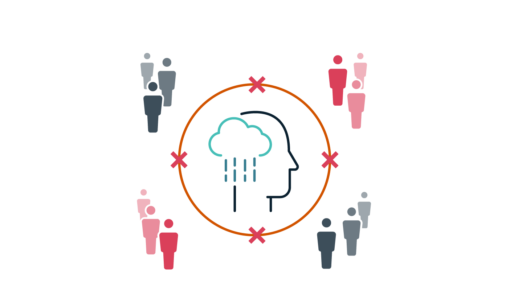Digital inclusion and online safety for adults in the UK
This report into adult safety online explores the kinds of safety risks adults face on the internet and how to incorporate digital safety into digital inclusion.
Key findings

46% of women and non-binary people reported experiencing online abuse since Covid-19

33% of respondents believe companies will do what users request through their settings & preferences

75% of the public are at least ‘fairly concerned’ about how organisations use and protect their personal data
Online safety is central to what being ‘digitally included’ means. It is especially important for people who are new or limited users of the internet (often older people, and working-age adults with low educational attainment and low incomes) and those in vulnerable situations.
This paper is a review of research, policy and practice – supplemented with insights from community organisations and those they support. We focused on ‘everyday’ internet risks, rather than the worst excesses of internet behaviour. We particularly wanted to understand the links between online safety and digital access, skills and confidence. Through this review, we have become more aware of the overlaps between digital literacy, media literacy, and data literacy (that is, people’s understanding of the value of their personal data, how it is used and how to control this).
This report was generously supported by BT as part of BT Skills for Tomorrow. Together with BT we will be publishing (early in 2021) a set of recommendations to encourage further discussion about how to address the findings and rise to the challenges ahead.
